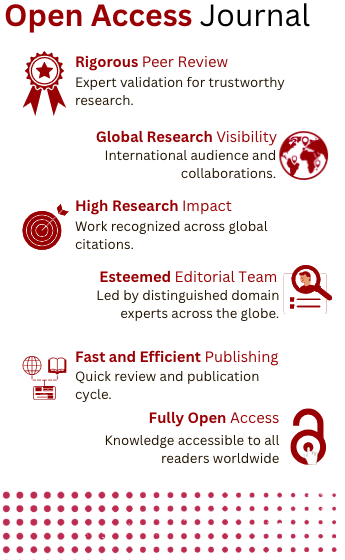Linear Regression Based Demand Forecast Model in Electric Vehicles -LRDF
DOI:
https://doi.org/10.5281/zenodo.7900508Keywords:
Forecasting With Machine Learning, Electric Vehicles, Cloud, Un-Supervised AlgorithmAbstract
Machine learning is an Artificial Intelligence (AI) software application that uses algorithms to analyze data, make inferences from that data, and then use what they've learned to create well-informed conclusions. Machine learning cannot process characters or strings; in order to process them, we must transform them to numerics. Otherwise, there will be exceptions or mistakes of some kind. After pre-processing, which removes the null or empty data from the original dataset, machine learning algorithms can predict or forecast future events using the provided dataset. Machine learning is now widely used in the software industry, and as a result, many software applications now offer predictions like weather forecast, impact of covid spread, future sales, etc. So, the problem of the demand of EVs in future is investigated using novel strategies for entirely eliminating problems with forecasting models, based on machine learning approach. The proposed LRDF model for Electric Vehicle’s is based on machine learning that accepts a dataset as an input in the form of an CSV file containing electric vehicles data that are useful for predicting demand for electric vehicles. The accuracy of three distinct classification algorithms, including the SVM algorithm, the Random Forest system, and the Linear Regression algorithm, will be examined. The results demonstrate that the linear regression approach performs significantly better than the other two algorithms. The LRDF model for Electric Vehicle’s when mounted on the public cloud server- which belongs to Infrastructure as a Service (IaaS), would increases the speed of dataset processing
References
Jin, H., Lee, S., Nengroo, S. H., & Har, D. (2022). Development of charging/discharging scheduling algorithm for economical and energy-efficient operation of multi-EV charging station. Applied Sciences, 12(9), 4786.
Shahriar, S., Al-Ali, A. R., Osman, A. H., Dhou, S., & Nijim, M. (2020). Machine learning approaches for EV charging behavior: A review. IEEE Access, 8, 168980-168993.
Jiang, X. (2022). Research on Electric Vehicle Charging Scheduling Strategy Based on the Multiobjective Algorithm. Mathematical Problems in Engineering, 2022.
Viziteu, A., Furtună, D., Robu, A., Senocico, S., Cioată, P., Remus Baltariu, M., ... & Răboacă, M. S. (2022). Smart Scheduling of Electric Vehicles Based on Reinforcement Learning. Sensors, 22(10), 3718.
Mhaisen, N., Fetais, N., & Massoud, A. (2020, February). Real-time scheduling for electric vehicles charging/discharging using reinforcement learning. In 2020 IEEE International Conference on Informatics, IoT, and Enabling Technologies (ICIoT) (pp. 1-6). IEEE.
Wang, R., Chen, Z., Xing, Q., Zhang, Z., & Zhang, T. (2022). A modified rainbow-based deep reinforcement learning method for optimal scheduling of charging station. Sustainability, 14(3), 1884.
Abdullah, H. M., Gastli, A., & Ben-Brahim, L. (2021). Reinforcement learning based EV charging management systems–a review. IEEE Access, 9, 41506-41531.
Shao, S., Harirchi, F., Dave, D., & Gupta, A. (2023). Preemptive scheduling of EV charging for providing demand response services. Sustainable Energy, Grids and Networks, 33, 100986.
Ahmed, S. T., Sandhya, M., & Sankar, S. (2019). An optimized RTSRV machine learning algorithm for biomedical signal transmission and regeneration for telemedicine environment. Procedia Computer Science, 152, 140-149.
Wang, Z., Jochem, P., & Fichtner, W. (2020). A scenario-based stochastic optimization model for charging scheduling of electric vehicles under uncertainties of vehicle availability and charging demand. Journal of Cleaner Production, 254, 119886.
Wang, Z., Jochem, P., & Fichtner, W. (2020). A scenario-based stochastic optimization model for charging scheduling of electric vehicles under uncertainties of vehicle availability and charging demand. Journal of Cleaner Production, 254, 119886.
Rajamoorthy, R., Arunachalam, G., Kasinathan, P., Devendiran, R., Ahmadi, P., Pandiyan, S., ... & Sharma, P. (2022). A novel intelligent transport system charging scheduling for electric vehicles using Grey Wolf Optimizer and Sail Fish Optimization algorithms. Energy Sources, Part A: Recovery, Utilization, and Environmental Effects, 44(2), 3555-3575.
Singh, K. D., & Ahmed, S. T. (2020, July). Systematic Linear Word String Recognition and Evaluation Technique. In 2020 International Conference on Communication and Signal Processing (ICCSP) (pp. 0545-0548). IEEE.
Ahmed, S. T., Kumar, V., & Kim, J. (2023). AITel: eHealth Augmented Intelligence based Telemedicine Resource Recommendation Framework for IoT devices in Smart cities. IEEE Internet of Things Journal.
Ma, W., Hu, J., Yao, L., Fu, Z., Morais, H., & Marinelli, M. (2022). New technologies for optimal scheduling of electric vehicles in renewable energy‐oriented power systems: A review of deep learning, deep reinforcement learning and blockchain technology. Energy Conversion and Economics.
Aljafari, B., Jeyaraj, P. R., Kathiresan, A. C., & Thanikanti, S. B. (2023). Electric vehicle optimum charging-discharging scheduling with dynamic pricing employing multi agent deep neural network. Computers and Electrical Engineering, 105, 108555.
Dahlin, N., & Jain, R. (2022). Scheduling flexible nonpreemptive loads in smart-grid networks. IEEE Transactions on Control of Network Systems, 9(1), 14-24.
Tuchnitz, F., Ebell, N., Schlund, J., & Pruckner, M. (2021). Development and evaluation of a smart charging strategy for an electric vehicle fleet based on reinforcement learning. Applied Energy, 285, 116382.
Al-Shammari, N. K., Syed, T. H., & Syed, M. B. (2021). An Edge–IoT framework and prototype based on blockchain for smart healthcare applications. Engineering, Technology & Applied Science Research, 11(4), 7326-7331.
Venegas, F. G., Petit, M., & Perez, Y. (2021). Active integration of electric vehicles into distribution grids: Barriers and frameworks for flexibility services. Renewable and Sustainable Energy Reviews, 145, 111060.
Downloads
Published
How to Cite
Issue
Section
License
Copyright (c) 2023 Shantala Devi Patil, Sreedevi Satheesh, Seema S M, R Mothish Chowdary

This work is licensed under a Creative Commons Attribution-NonCommercial-NoDerivatives 4.0 International License.







